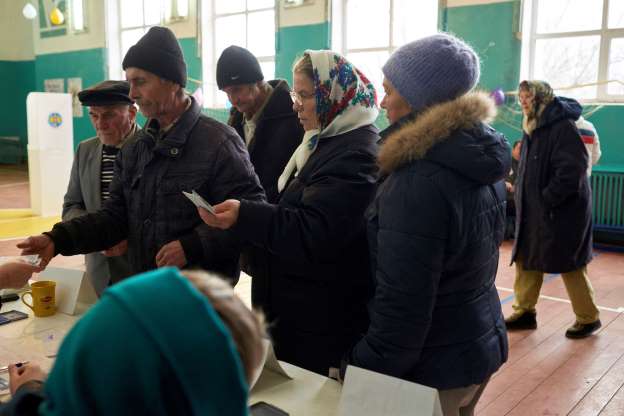
22 Feb 2019, Chisinau
Voters in Moldova head to the polls on Sunday for a parliamentary election reflecting the tiny ex-Soviet republic’s long-standing division between pro-Russians and pro-Europeans.
Wedged between Ukraine and Romania, Moldova has struggled to find its place since gaining independence with the 1991 collapse of the Soviet Union.
While many in the country of 3.5 million want to maintain close ties with Moscow, others want to follow the example of Romania — with which Moldova shares a language and long history — and look west to the European Union.
Sunday’s vote is shaping up as a three-way race between the pro-Russian Socialist party of President Igor Dodon, the ruling Democratic party and a pro-European alliance.
It will be held under a new electoral system that divides the 101-seat parliament into seats elected by party lists and by individual constituencies.
Dodon’s pro-Moscow party is leading in the polls, advocating for Moldova to join Russia’s Eurasian Economic Union over the EU.
The alliance of pro-European parties, which favours joining the EU and NATO, comes second.
In third place is the centre-left Democratic Party led by powerful oligarch Vlad Plahotniuc, which holds a majority in the current parliament and leads the government. It has pursued a balanced approach between Moscow and Brussels.
Campaign posters in Russian and Romanian hang over a flea market in the capital Chisinau, where volunteers from all parties were handing out leaflets to passersby this week.
At a stand of the pro-EU ACUM alliance of parties, campaigner Ruslan Verbitchi told AFP that Moldova has two major problems: “Endemic corruption and the violation of human rights.”
Voters, however, showed little enthusiasm for the polls. With corruption widespread and the country among the poorest in Europe, few have much trust in Moldova’s politicians.










